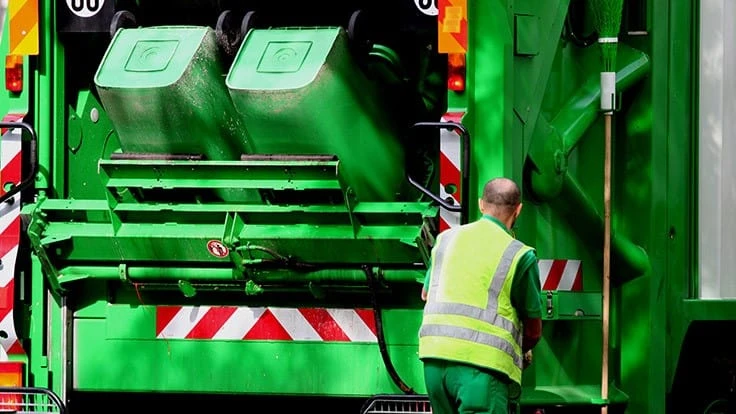
© Gautier Willaume - Dreamstime.com
In the past six years, The Recycling Partnership has helped to deliver recycling carts to more than 700,000 U.S. households and educate more than 77 million households in the U.S. on recycling. These were some findings the Falls Church, Virginia-based organization discovered and shared in its 2020 Impact Report, which shows how the organization activated change in communities since it started in 2014.
“As we navigate the impacts of COVID-19 as a nation, one of the tasks ahead is to rebuild a strong U.S. economy in a way that supports people and the planet,” says Keefe Harrison, CEO of The Recycling Partnership. “Recycling will have a central role to play in the process of rebuilding the U.S. economy. Our 2020 Impact Report shows how we’re working with communities, corporate brands and other industry-aligned organizations to move the U.S. from a linear economy to a circular economy.”
According to a news release from The Recycling Partnership, the report highlights how the organization is mission-focused on helping more than 1,500 U.S. communities overcome recycling challenges. Since the organization’s inception in 2014, it has leveraged more than $90 million in impact.
The Recycling Partnership reports that some of the households reached were in Ohio where, over the last year, the partnership worked with the Ohio Environmental Protection Agency to reduce contamination in five pilot communities. As a result of that work, those communities reduced contamination by 40 percent and increased the value of cleaner recyclables by about $20 per ton.
“We thank The Recycling Partnership and our pilot cities in Ohio for their efforts and partnership to improve how Ohioans recycle,” says Vlad Cica, the Ohio EPA Division of Materials and Waste Management chief. “Improving and increasing education, along with other interventions like working street-to-street help us all to recycle better and show our communities why recycling matters.”
The Recycling Partnership states that its strategy for the next 18 months will focus on implementing smarter systems across the value chain, along with continuing to unlock supply of recyclable materials from communities, reducing contamination in local recycling systems, sparking innovation through material collaboratives to make more items commonly recycled, and working with elected leaders to ensure an even playing field for recycling and plans for improved infrastructure.
The current global pandemic has shined a light on just how loosely connected but highly dependent our recycling system is in the United States and has made clear the next steps needed to move toward the recycling system of the future, the partnership reports.
“One of the things I hope we all carry forward from this time of crisis is the perspective and heightened awareness of how we, as humans, collectively impact the earth—and the responsibility we have to lighten that burden,” Harrison says. “The good work of The Recycling Partnership, to create a circular economy and a healthy U.S. recycling system, is now more important than ever.”
Click here to read the full report.
Latest from Recycling Today
- Haber raises $44M to expand to North America
- Canada Plastics Pact releases 2023-24 Impact Report
- Reconomy brands receive platinum ratings from EcoVadis
- Sortera Technologies ‘owning and operating’ aluminum sorting solutions
- IDTechEx sees electric-powered construction equipment growth
- Global steel output recedes in November
- Fitch Ratings sees reasons for steel optimism in 2025
- P+PB adds new board members





